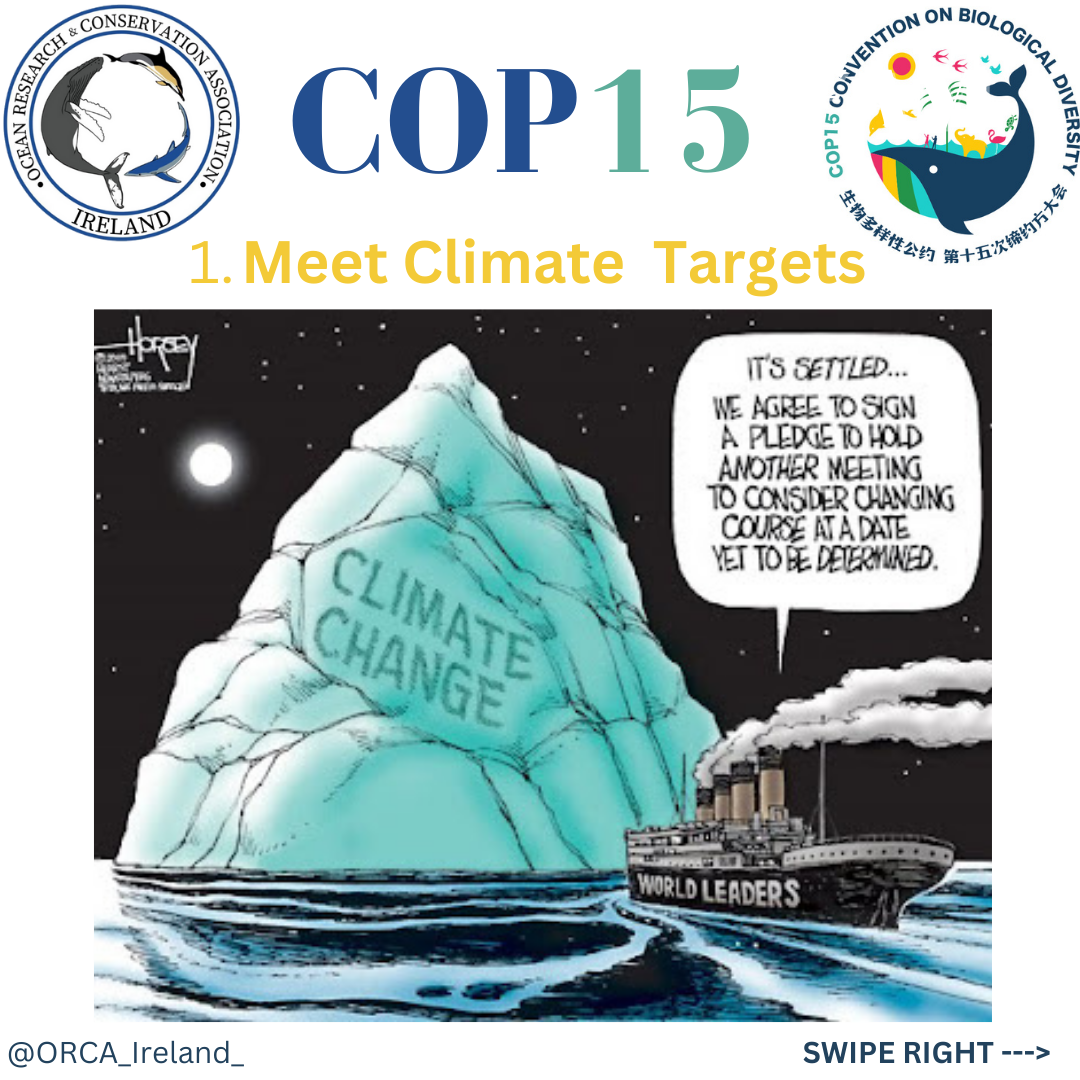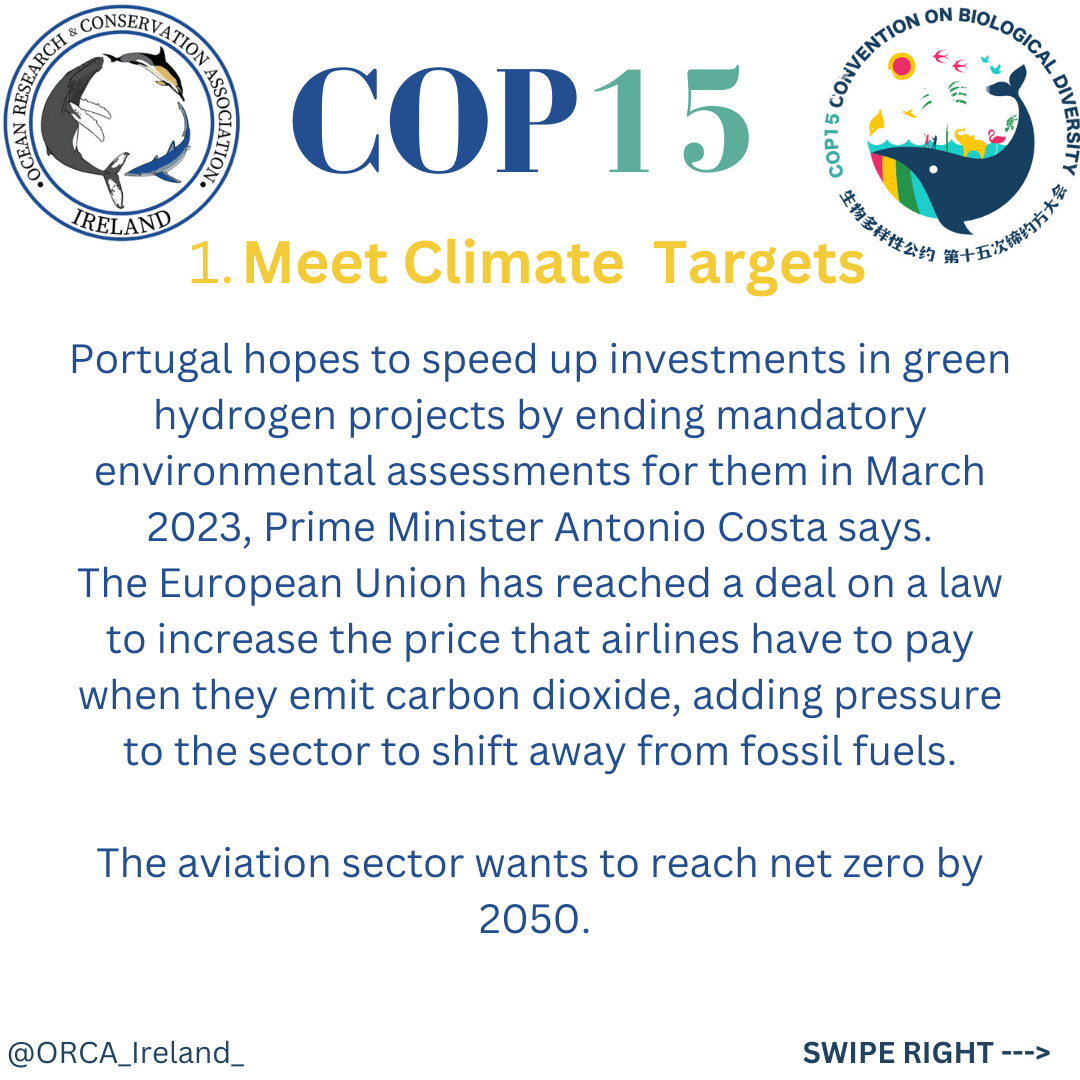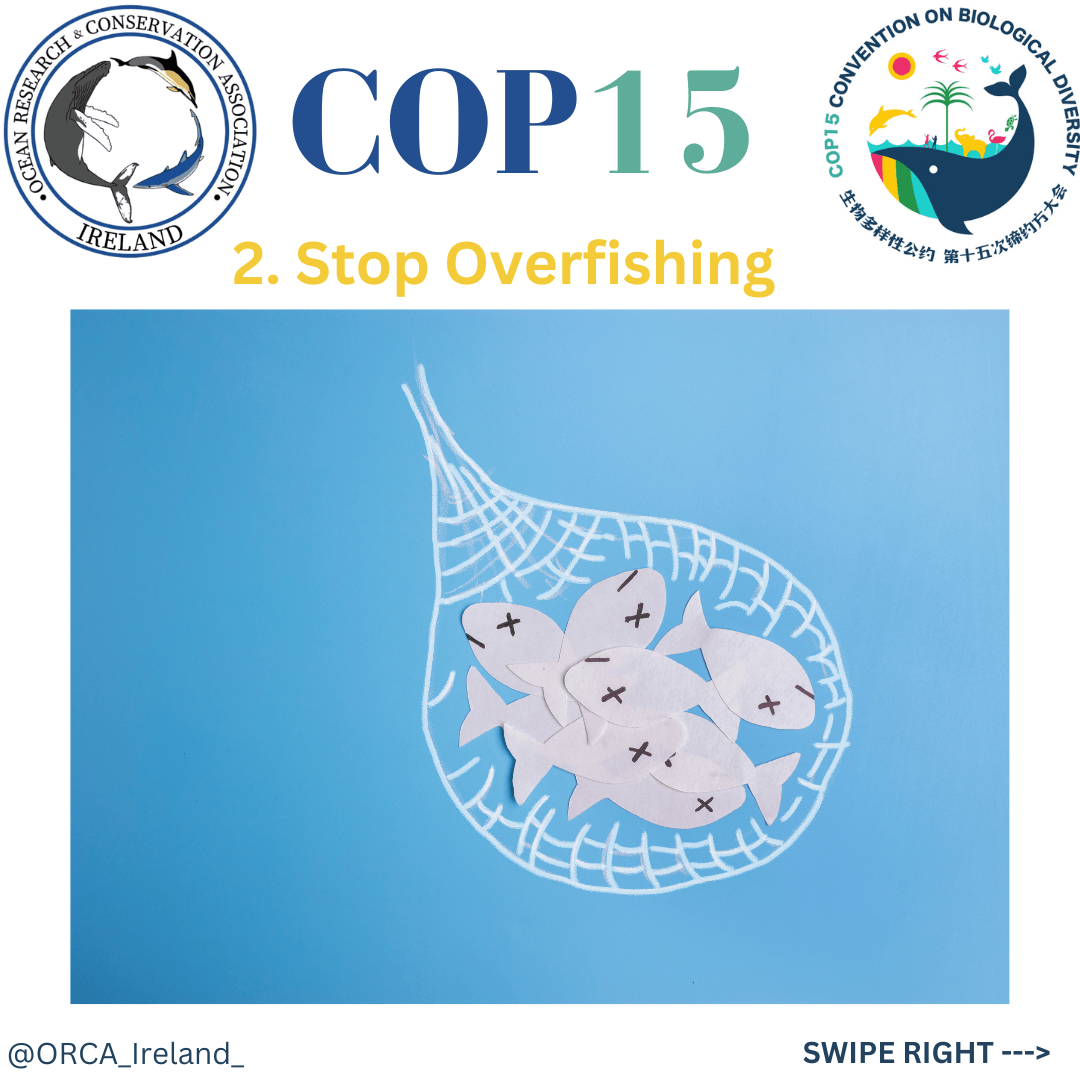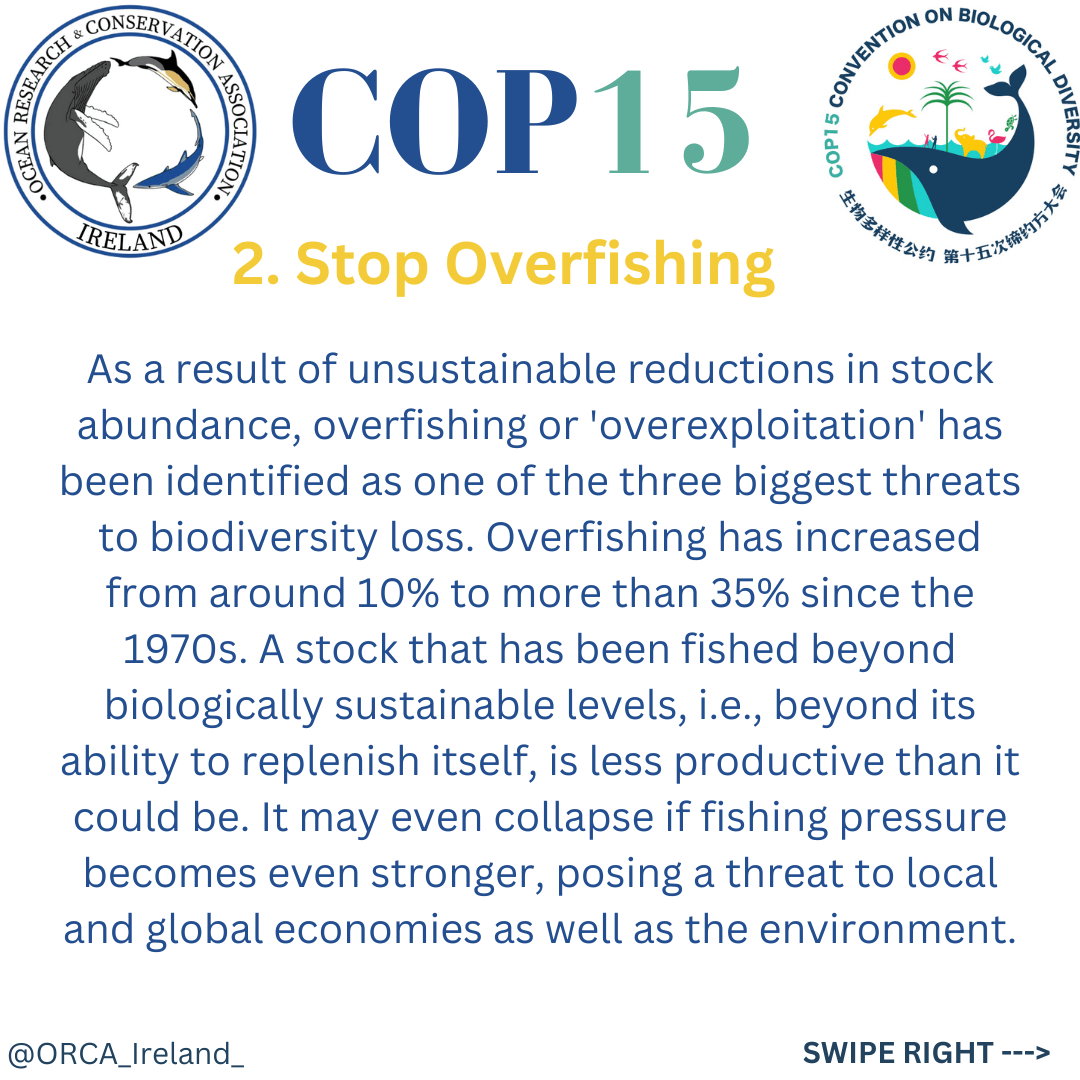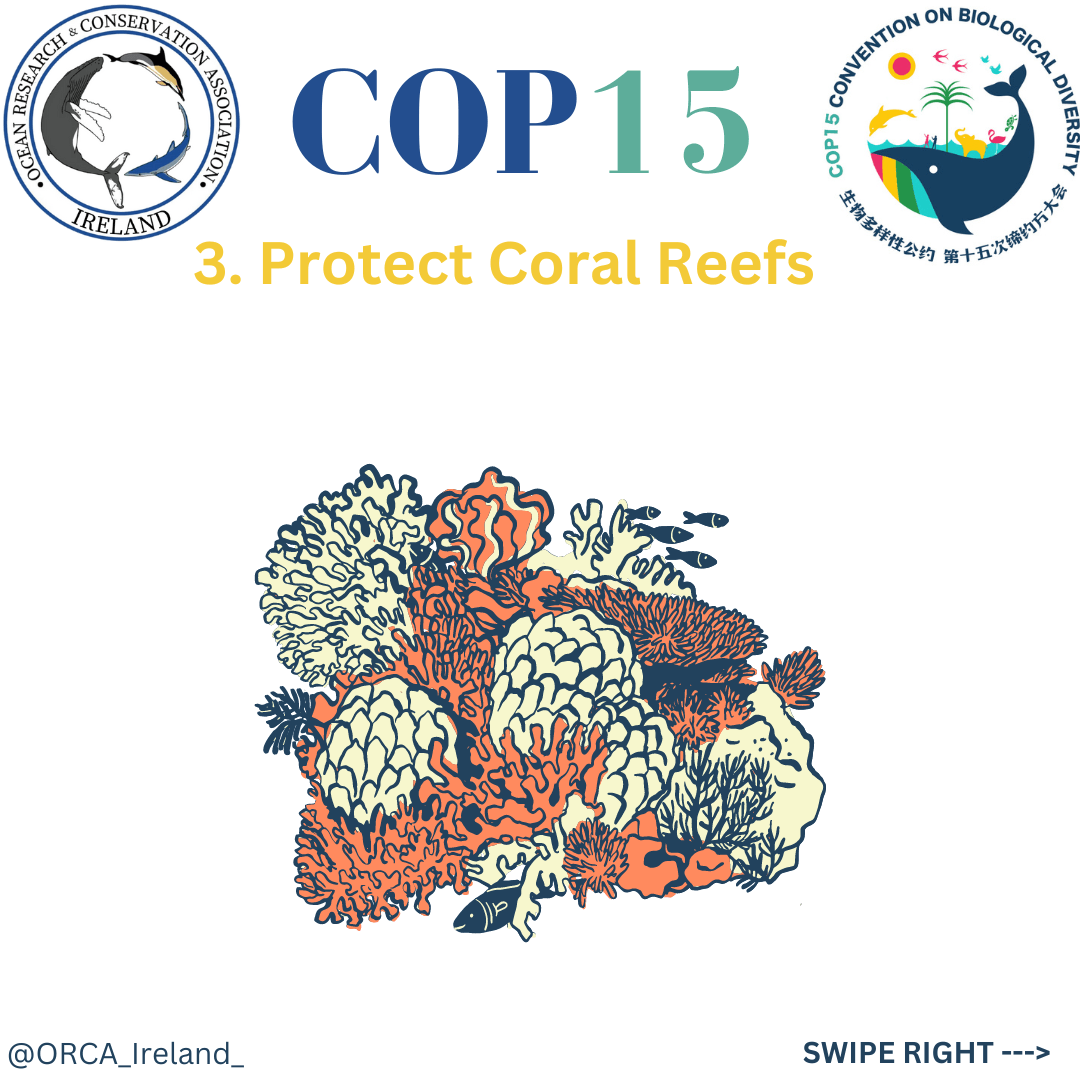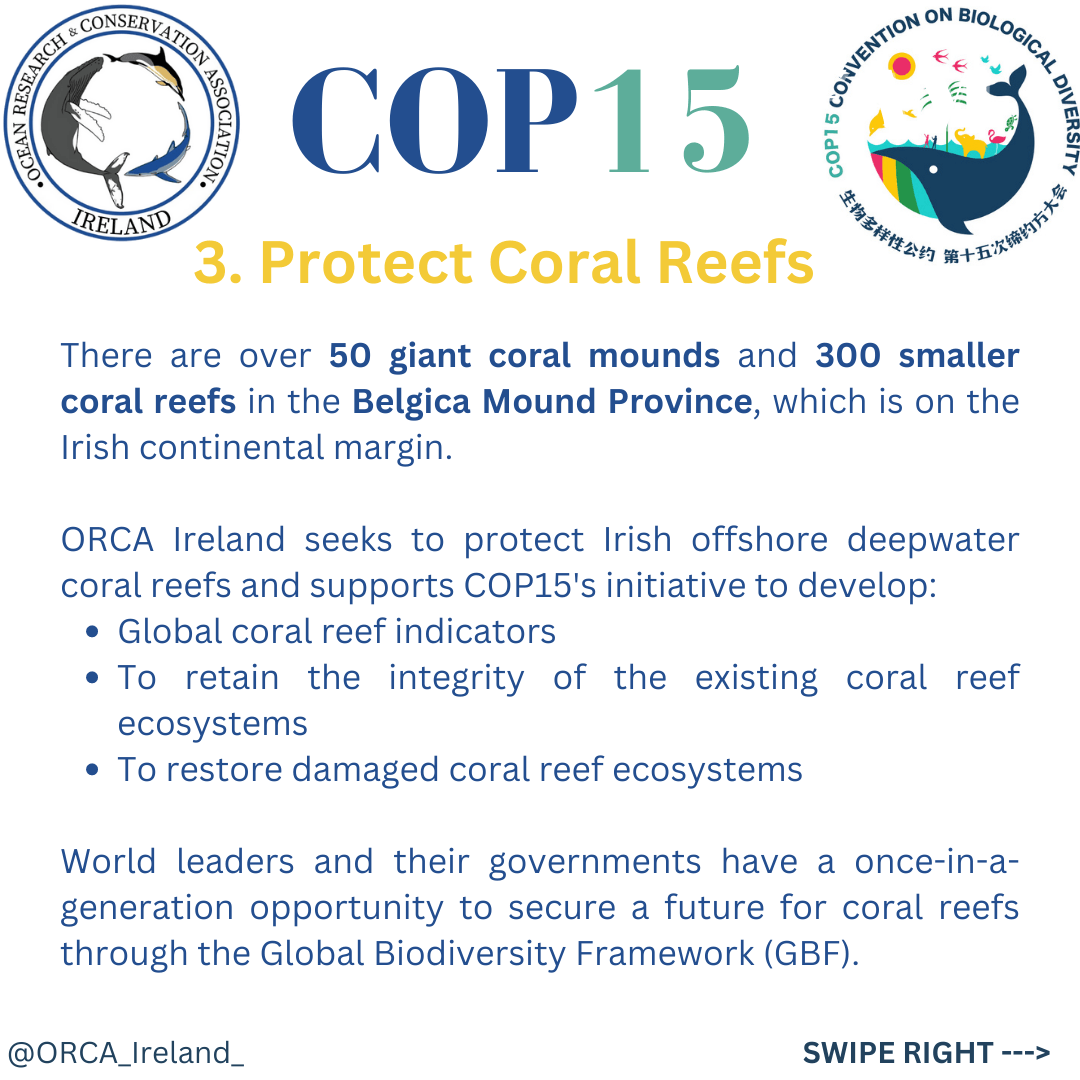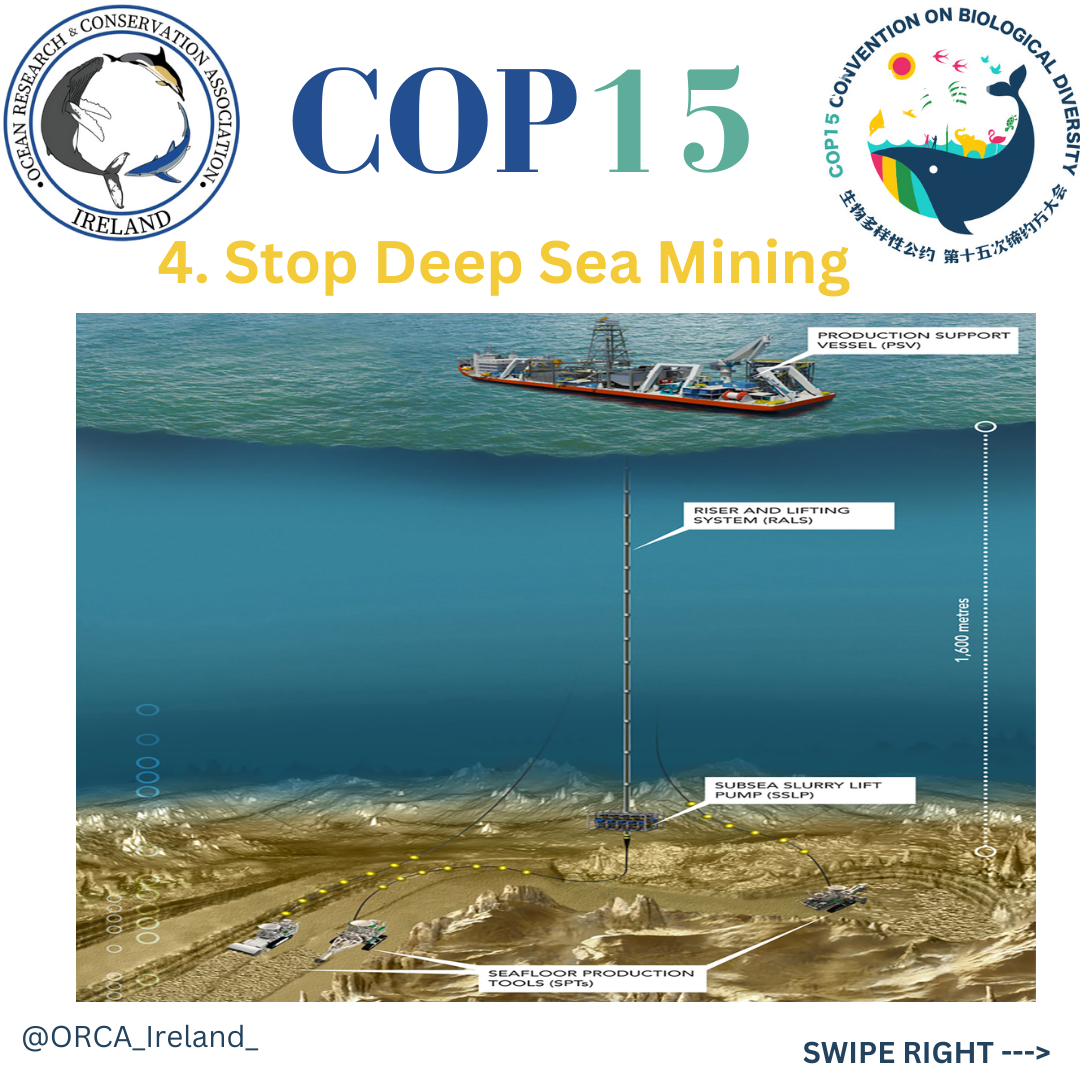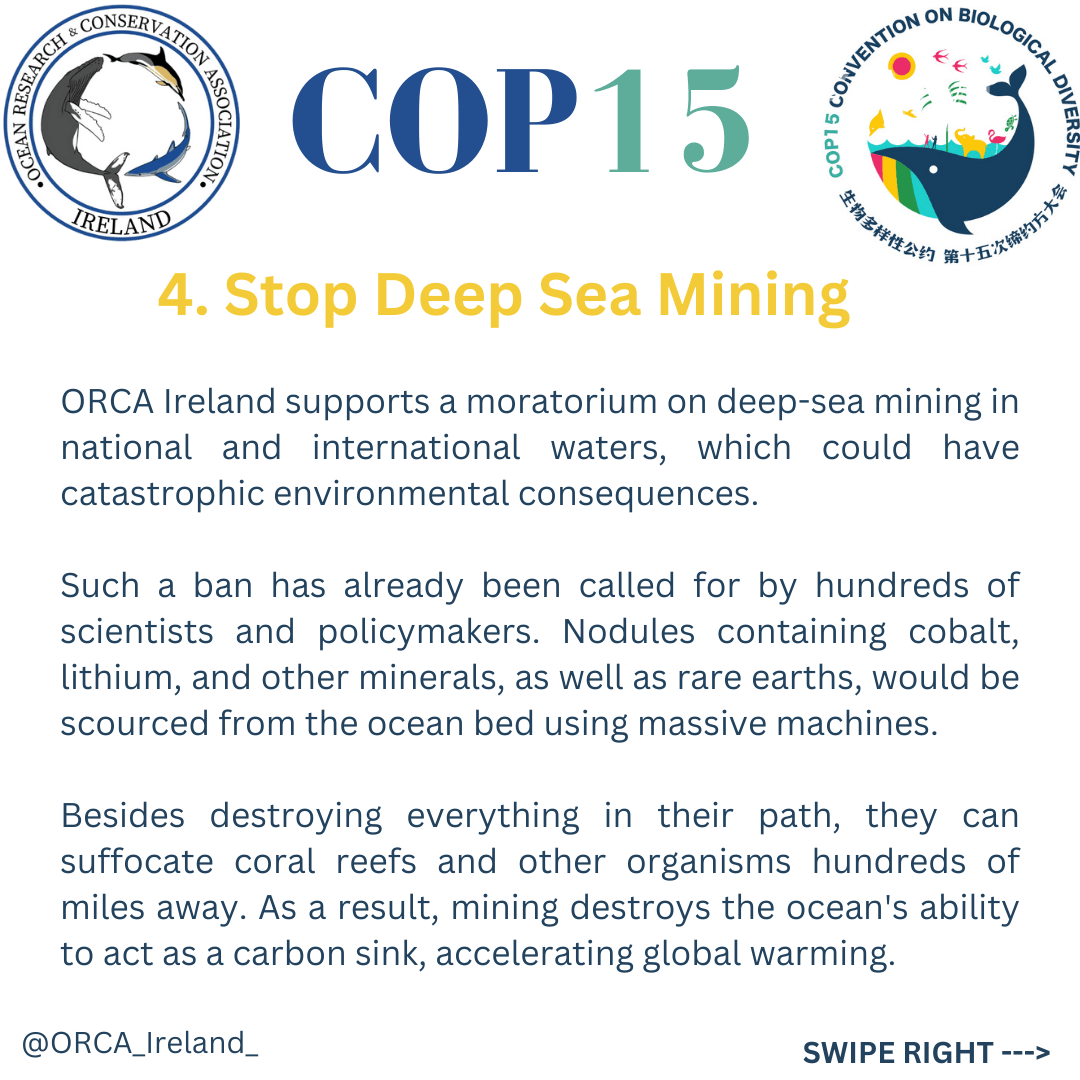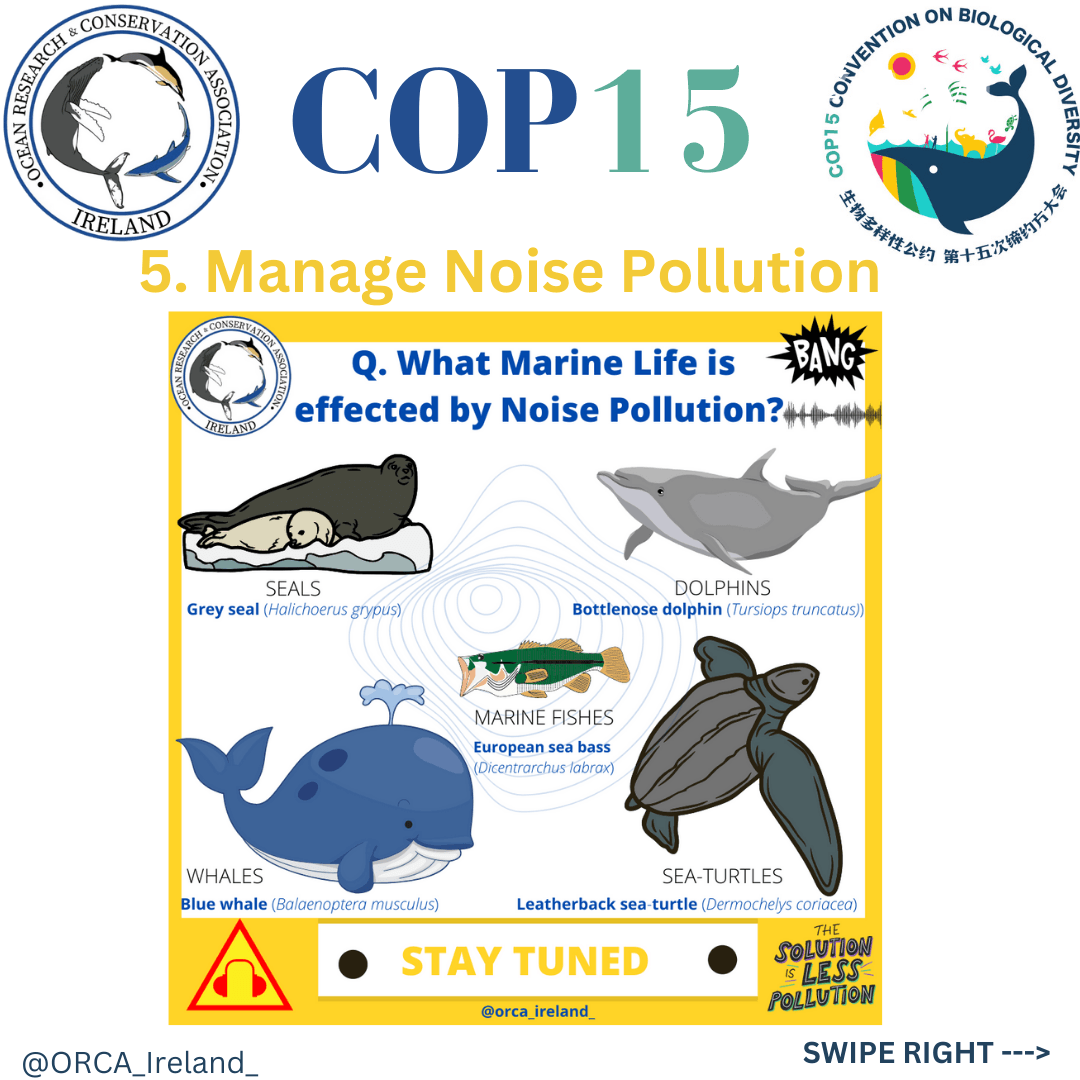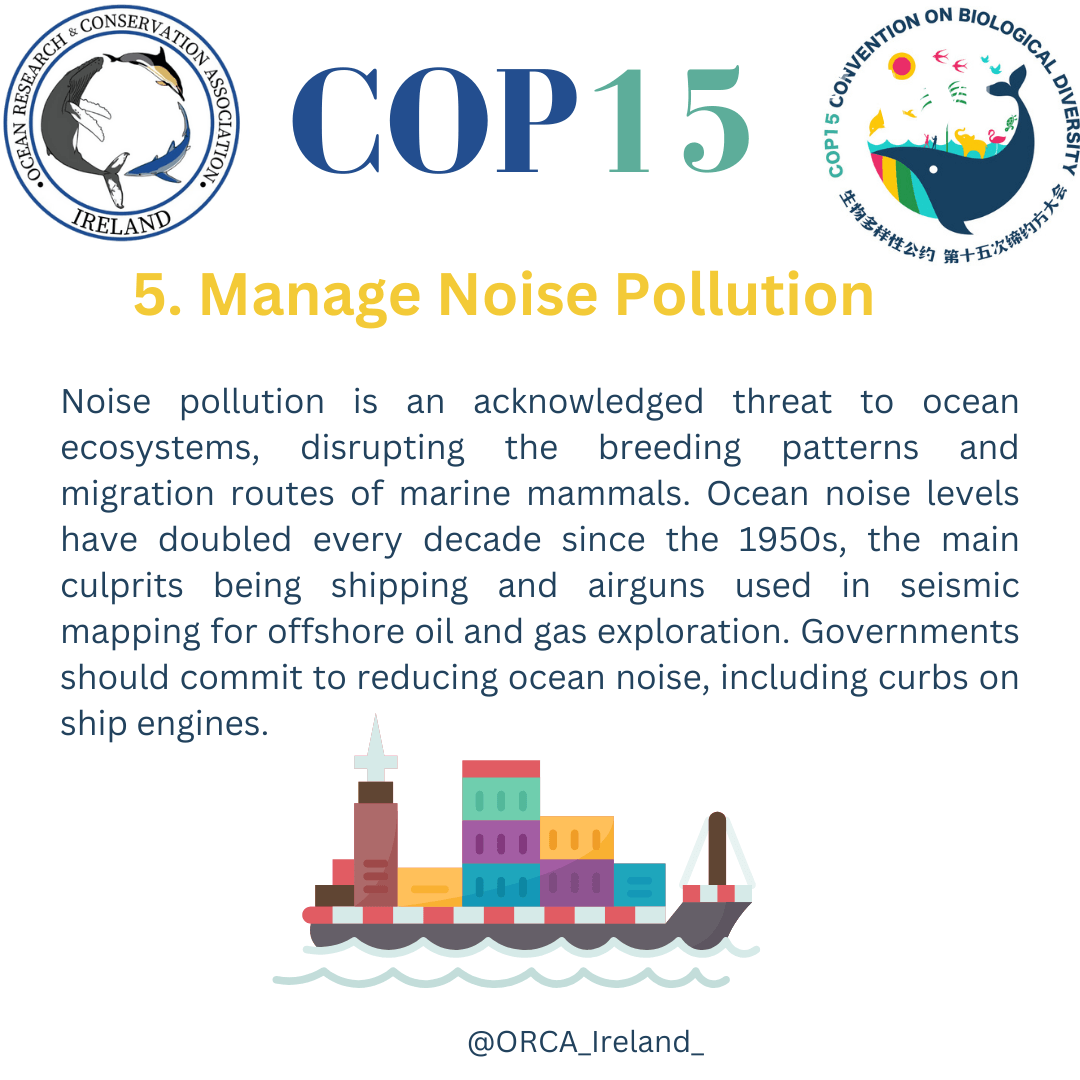Cop 15: Oceans of Opportunity to Protect Marine Wildlife
COP15: Oceans of Opportunity to Protect Marine Wildlife.
ORCA Sci-Comm | 20th of December 2022.
The UN conference on the Convention on Biological Diversity (COP15), took place from December 7th-19th in Montreal. COP15 offered an opportunity to help safeguard global biodiversity, including ocean life — but only if delegates left with a strong international agreement in place. Before the conference ended 190 countries signed a new Biodiversity Agreement to protect 30% of our oceans by 2030.
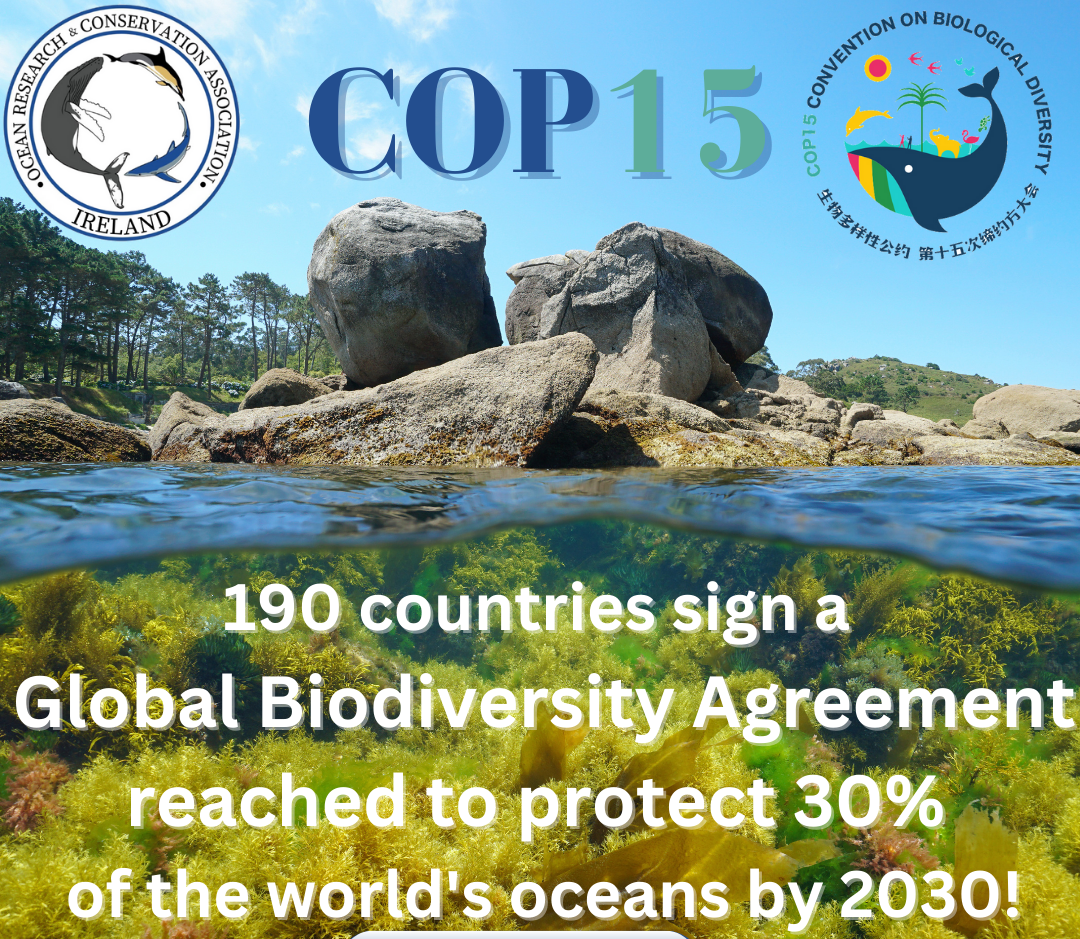
The ocean provides important habitats for millions of marine species, with many yet to be discovered. From food to economic opportunities and recreational activities, marine biodiversity provides countless benefits. The livelihoods of more than 3 billion people are directly dependent on marine and coastal biodiversity.
In spite of this, marine life is declining at an alarming rate. Approximately one-third of marine mammals, sharks (and their relatives) and reef-forming corals are threatened with extinction. In addition to affecting ocean biodiversity, this decline is harmful to the planet and people as well.
In 2002, parties to the UN’s Convention on Biological Diversity committed to significantly reduce the rate of biodiversity loss by 2010. This commitment, however, was not met.
In 2010, a new plan was agreed under the 20 Aichi Biodiversity Targets, a 10-year plan to protect and conserve natural systems by 2020. These targets also went unmet by their 2020 deadline.
The repeated bypassing of these targets has led to the continued decline of global biodiversity and the benefits it provides. Meanwhile, wildlife populations have dropped by an average 69% over the last 50 years, according to the most recent Living Planet report.
With so much at stake, many are calling for world leaders to strike a “Paris Agreement for nature” at COP15. Known as the Post-2020 Biodiversity Framework, a new international agreement would set targets for all countries to meet by 2030, as well as goals to meet by 2050 that will set humans on a path to “living in harmony with nature by 2050.”
While the conference and the agreement it produced are broader than just protecting the ocean, covering targets for forests, deserts, grasslands and freshwater ecosystems, among others, whatever winds up in the final agreement has tremendous implications for the future of ocean health — and for all of us.
The ocean’s health and the vast benefits it provides for humanity depend on countries adopting strong targets for sustainable use within the Post-2020 Biodiversity Framework and employing strong national management plans.
Step 1: Protect at least 30% of the planet.
Half the planet must be kept in a natural state in order to address both the biodiversity crisis and the climate crisis, according to growing scientific research. Experts agree that a necessary and scientifically credible interim goal is to achieve a minimum of 30% protection of the world’s land and ocean by 2030 — also known as 30x30.
Momentum has been building for this target thanks to the High Ambition Coalition for Nature and People, an intergovernmental group of more than 100 countries championing the inclusion of a global 30x30 deal in the Post-2020 Biodiversity Framework and pushing for its ratification of this.
Adopting the 30x30 target is a critical starting point for protecting the ocean and all its resources.
Step 2: Going beyond 30x30 in the ocean.
While adopting a deal with provisions to protect at least 30% of the planet is step one, it’s not enough to ensure a healthy ocean. As an interconnected, flowing system, simply setting aside a swathe of ocean isn’t enough to ensure marine biodiversity has what it needs to thrive.
For one, designating a protected area is not the same as truly protecting it. Currently, of the 17% of global waters under national jurisdiction that are designated as Marine Protected Areas, only 6.2% are closed or limited to extractive or destructive activities.
And second, the 30x30 approach to ocean conservation cannot work if the remaining 70% is left unprotected and unmanaged. There are no barriers in the ocean. Pollutants such as agricultural runoff can flow freely across boundaries, while overfishing in one area of the ocean affects wildlife populations in the surrounding waters.
Furthermore, looming large over conservation efforts is the threat of climate change, which has the potential to undo local interventions. Meaningful climate change action is needed to reduce the threats posed by ocean heating, acidification and sea level rise.
What the ocean really needs is a holistic approach to its management.
Advancing 100% Sustainable Ocean Management
After countries agree to the 30x30 target, it is vital that marine and coastal states progress beyond the framework to sustainably manage 100% of the waters under their jurisdiction.
The good news is that some countries are already leading this work. The High Level Panel for a Sustainable Ocean Economy is a global initiative of 17 leaders working to ensure protection, sustainable production and equity in ocean-based industries. This group has commissioned research into various aspects of an ocean economy and laid out what 100% sustainable management looks like in its action agenda. The agenda includes ensuring people benefit equitably from the ocean, reducing emissions by accelerating ocean-based climate action, investing in projects that accelerate ocean-based renewable energy and more.
The 17 countries of the Ocean Panel aim to sustainably manage 100% of the ocean area under their national jurisdictions, with some having already implemented sustainable ocean initiatives.
These are the sorts of national measures that are necessary to ensure the 30x30 target and the Post-2020 Biodiversity Framework deliver on their intention to get people to live in harmony with nature.
SHARE THIS ARTICLE






